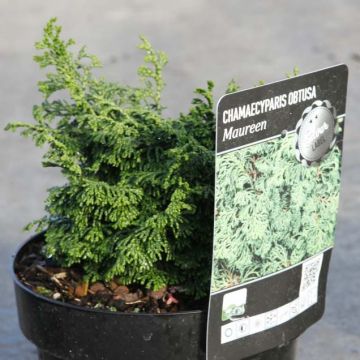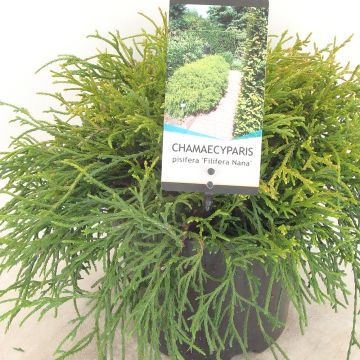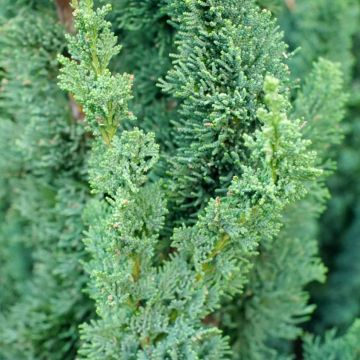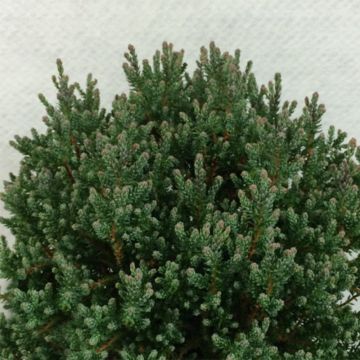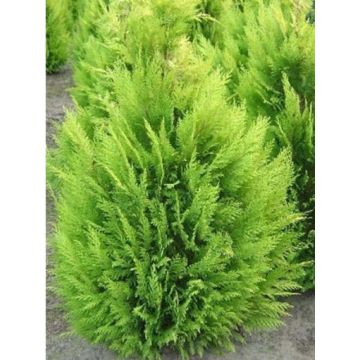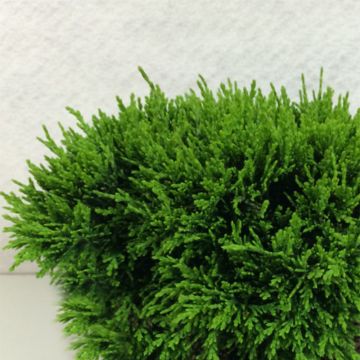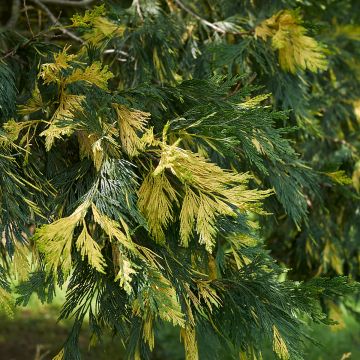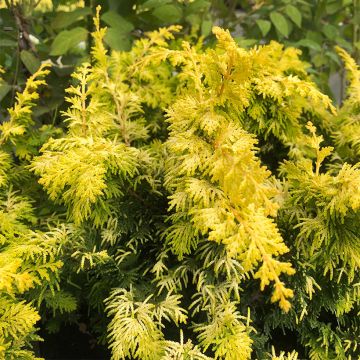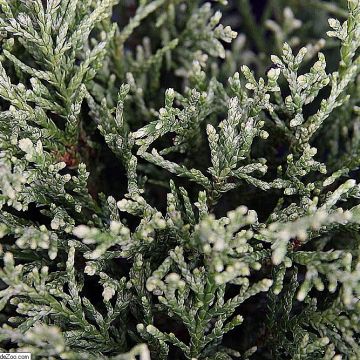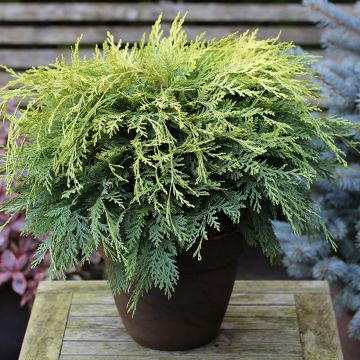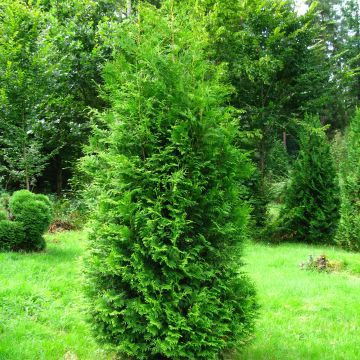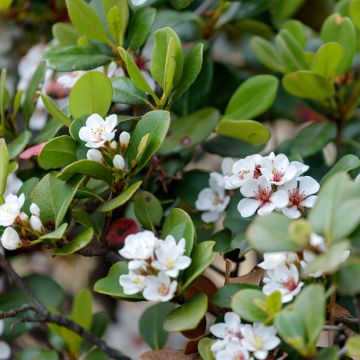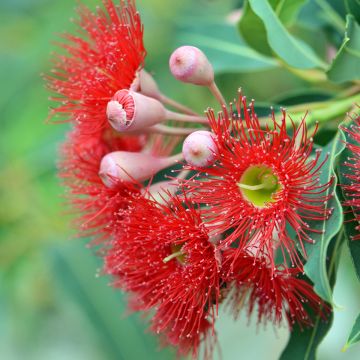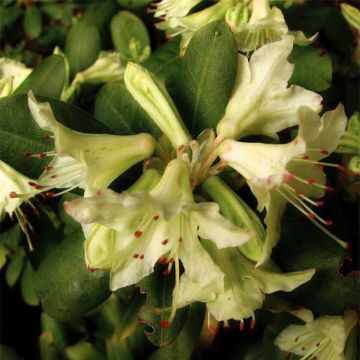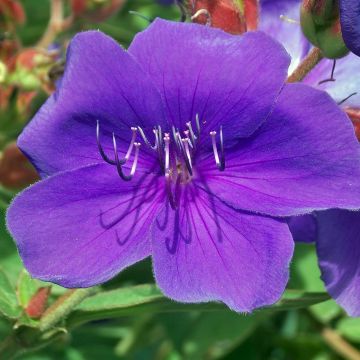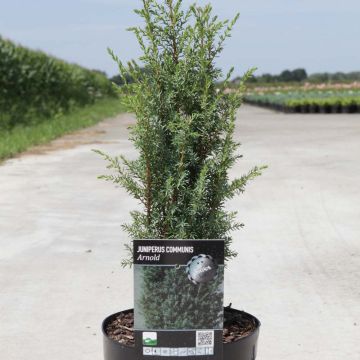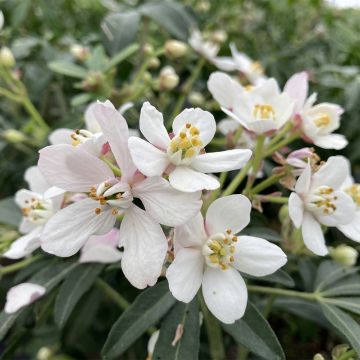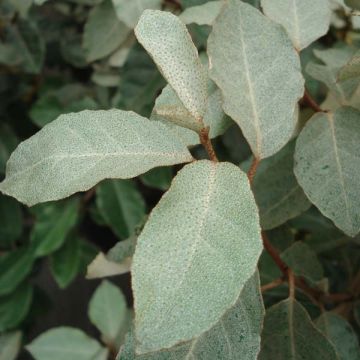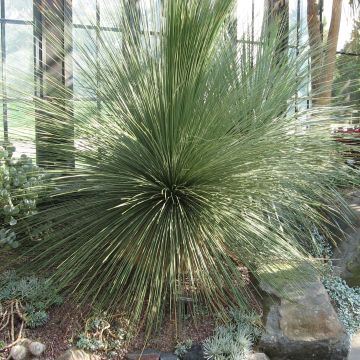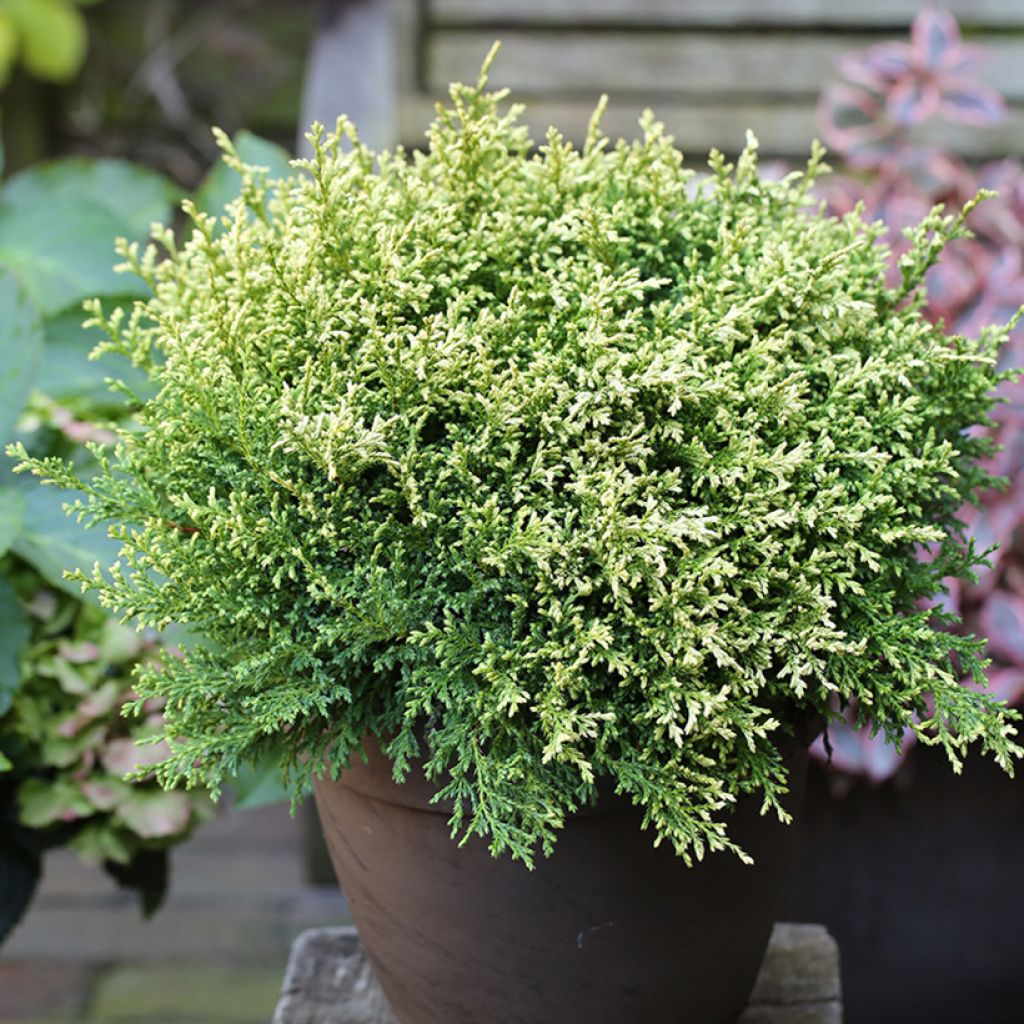

Chamaecyparis pisifera Plumosa Compressa - Dwarf Cypress
Chamaecyparis pisifera Plumosa Compressa - Dwarf Cypress
Chamaecyparis pisifera Plumosa Compressa
Sawara cypress, Japanese false cypress
This item cannot be shipped to the selected country
Delivery charge from €5.90
More information
Schedule delivery date,
and select date in basket
This plant carries a 24 months recovery warranty
More information
We guarantee the quality of our plants for a full growing cycle, and will replace at our expense any plant that fails to recover under normal climatic and planting conditions.
From €5.90 for pickup delivery and €6.90 for home delivery
Express home delivery from €8.90.
Does this plant fit my garden?
Set up your Plantfit profile →
Description
The Chamaecyparis pisifera 'Plumosa Compressa' is a dwarf variety of the unusual Sawara Cypress that charms with its irregular habit, very dense and "compressed" growth, and the soft colours of feathery foliage. It is a slow-growing conifer that dresses in shades of green, yellow, or greyish, depending on the season. It adds a beautiful and delicate texture to a landscape composition, which should be fully exploited in a rock garden, a Japanese-style setting, a small garden, or a contemporary terrace. Requiring little maintenance, this Chamaecyparis prefers a sunny or semi-shaded exposure, a humus-rich, well-drained soil that does not dry out too much.
The Chamaecyparis pisifera is a robust Japanese species belonging to the cypress family, which can reach 45 metres in its natural state. It is mainly used for its rot-resistant wood and lemon yellow, for making lacquered furniture, and for constructing numerous buildings such as palaces in its country of origin. It has given rise to multiple cultivars, classified into four groups according to the appearance of their foliage and vegetation: 'Plumosa', 'Squarrosa', 'filifera', and 'Nana'.
The 'Plumosa Compressa' variety forms a somewhat shapeless cushion or a sort of tiered bun with a generally rounded habit over many years. Its growth is slow, around 2.5 to 15 cm per year; at age 10, it measures between 60 and 90 cm in all directions, depending on the growing conditions. Ultimately, it will not exceed 1.50 m. The vegetation of this plant is highly branched from the base to the top. Its very tight branches have a remarkable texture. They are adorned at their tips with small branchlets arranged flat in a fan shape. The juvenile leaves are needle-like (linear, rigid, and pointed), while the adult leaves are scale-like and pointed, darker in colour. The undersides of these leaves show a very pronounced silvery band, corresponding to a row of stomata (the 'pores' on the plant's epidermis). Its bark is barely visible, is dark red, and has a fibrous appearance. The foliage is tinted butter yellow to cream yellow in spring, turns green in summer, lemon green in autumn, and then soft bluish-green in winter.
The Chamaecyparis pisifera 'Plumosa Compressa' looks superb in rock gardens or rocky slopes. It is also well suited for planting in large pots on the terrace. In this case, it will be placed in the centre of the container and surrounded by ground-cover plants that will spill over the edges. Its slow growth and round silhouette, which requires no pruning, will work wonders alongside dwarf conifers with columnar, pyramidal, or narrow conical habits. The graphic qualities of dwarf conifers naturally stand out in a contemporary setting. With their reassuring permanence, these plants structurally define a flower bed, mark pathways, and border the terrace. They serve as a backdrop for miniature ground cover roses, peonies, or tousled ornamental grasses with complementary temperaments. They can also be associated with ground cover plants such as dwarf wormwood, silver baskets, and small perennials. The key is to play with volumes and colours.
Report an error about the product description
Chamaecyparis pisifera Plumosa Compressa - Dwarf Cypress in pictures
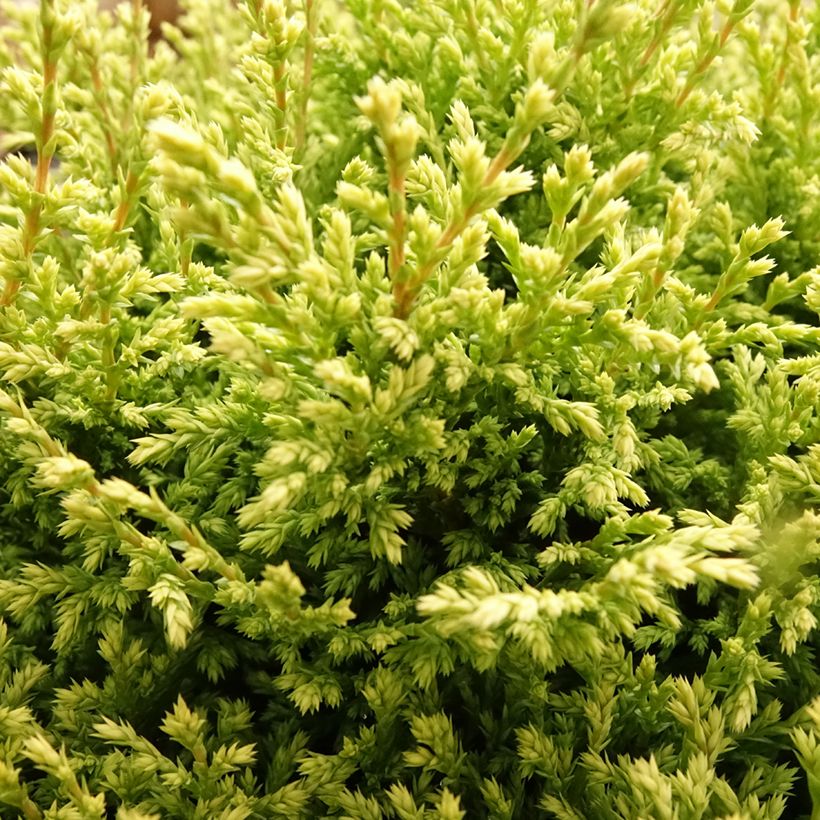

Plant habit
Foliage
Botanical data
Chamaecyparis
pisifera
Plumosa Compressa
Cupressaceae
Sawara cypress, Japanese false cypress
Cultivar or hybrid
Other Chamaecyparis
Planting and care
The Chamaecyparis pisifera 'Plumosa Compressa' is planted from September to November and from February to May in a relatively fertile, well-drained, light, neutral or slightly acidic soil, which remains somewhat moist in summer. A humus-rich soil or a mixture of ericaceous compost and garden soil will be perfectly suitable. Choose a sunny or semi-shaded location sheltered from prevailing winds. Soak the root balls well before planting. Add organic amendments to planting and water generously in the first years. Apply a special conifer fertiliser every year in April and cultivate the soil in summer. This conifer is sensitive to dry and very hot summers and drying winds. It does not require pruning.
Planting period
Intended location
Care
This item has not been reviewed yet - be the first to leave a review about it.
Evergreen shrubs
Haven't found what you were looking for?
Hardiness is the lowest winter temperature a plant can endure without suffering serious damage or even dying. However, hardiness is affected by location (a sheltered area, such as a patio), protection (winter cover) and soil type (hardiness is improved by well-drained soil).

Photo Sharing Terms & Conditions
In order to encourage gardeners to interact and share their experiences, Promesse de fleurs offers various media enabling content to be uploaded onto its Site - in particular via the ‘Photo sharing’ module.
The User agrees to refrain from:
- Posting any content that is illegal, prejudicial, insulting, racist, inciteful to hatred, revisionist, contrary to public decency, that infringes on privacy or on the privacy rights of third parties, in particular the publicity rights of persons and goods, intellectual property rights, or the right to privacy.
- Submitting content on behalf of a third party;
- Impersonate the identity of a third party and/or publish any personal information about a third party;
In general, the User undertakes to refrain from any unethical behaviour.
All Content (in particular text, comments, files, images, photos, videos, creative works, etc.), which may be subject to property or intellectual property rights, image or other private rights, shall remain the property of the User, subject to the limited rights granted by the terms of the licence granted by Promesse de fleurs as stated below. Users are at liberty to publish or not to publish such Content on the Site, notably via the ‘Photo Sharing’ facility, and accept that this Content shall be made public and freely accessible, notably on the Internet.
Users further acknowledge, undertake to have ,and guarantee that they hold all necessary rights and permissions to publish such material on the Site, in particular with regard to the legislation in force pertaining to any privacy, property, intellectual property, image, or contractual rights, or rights of any other nature. By publishing such Content on the Site, Users acknowledge accepting full liability as publishers of the Content within the meaning of the law, and grant Promesse de fleurs, free of charge, an inclusive, worldwide licence for the said Content for the entire duration of its publication, including all reproduction, representation, up/downloading, displaying, performing, transmission, and storage rights.
Users also grant permission for their name to be linked to the Content and accept that this link may not always be made available.
By engaging in posting material, Users consent to their Content becoming automatically accessible on the Internet, in particular on other sites and/or blogs and/or web pages of the Promesse de fleurs site, including in particular social pages and the Promesse de fleurs catalogue.
Users may secure the removal of entrusted content free of charge by issuing a simple request via our contact form.
The flowering period indicated on our website applies to countries and regions located in USDA zone 8 (France, the United Kingdom, Ireland, the Netherlands, etc.)
It will vary according to where you live:
- In zones 9 to 10 (Italy, Spain, Greece, etc.), flowering will occur about 2 to 4 weeks earlier.
- In zones 6 to 7 (Germany, Poland, Slovenia, and lower mountainous regions), flowering will be delayed by 2 to 3 weeks.
- In zone 5 (Central Europe, Scandinavia), blooming will be delayed by 3 to 5 weeks.
In temperate climates, pruning of spring-flowering shrubs (forsythia, spireas, etc.) should be done just after flowering.
Pruning of summer-flowering shrubs (Indian Lilac, Perovskia, etc.) can be done in winter or spring.
In cold regions as well as with frost-sensitive plants, avoid pruning too early when severe frosts may still occur.
The planting period indicated on our website applies to countries and regions located in USDA zone 8 (France, United Kingdom, Ireland, Netherlands).
It will vary according to where you live:
- In Mediterranean zones (Marseille, Madrid, Milan, etc.), autumn and winter are the best planting periods.
- In continental zones (Strasbourg, Munich, Vienna, etc.), delay planting by 2 to 3 weeks in spring and bring it forward by 2 to 4 weeks in autumn.
- In mountainous regions (the Alps, Pyrenees, Carpathians, etc.), it is best to plant in late spring (May-June) or late summer (August-September).
The harvesting period indicated on our website applies to countries and regions in USDA zone 8 (France, England, Ireland, the Netherlands).
In colder areas (Scandinavia, Poland, Austria...) fruit and vegetable harvests are likely to be delayed by 3-4 weeks.
In warmer areas (Italy, Spain, Greece, etc.), harvesting will probably take place earlier, depending on weather conditions.
The sowing periods indicated on our website apply to countries and regions within USDA Zone 8 (France, UK, Ireland, Netherlands).
In colder areas (Scandinavia, Poland, Austria...), delay any outdoor sowing by 3-4 weeks, or sow under glass.
In warmer climes (Italy, Spain, Greece, etc.), bring outdoor sowing forward by a few weeks.

































